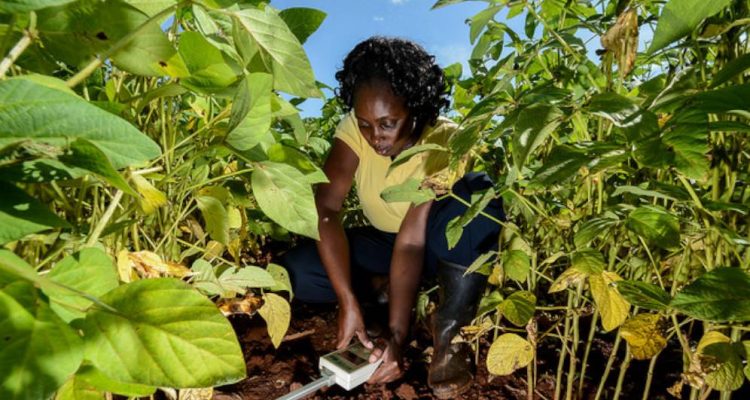The minister in charge of the accompaniment and mutualization of farmers’ organizations, Moustapha Lô Diatta, noted the importance of digitization in improving agricultural performance, particularly in view of the experience of Senegal which has made the use of information and communication technology (ICT) as a “key factor in agriculture”.
“Today, we are talking about value chains in an environment where many actors are not very organized” and in which “the use of ICTs can be an opportunity to start organizing them”, he said at a forum he attended in Berlin (Germany).
Moustapha Lô Diatta, who last week hosted a panel on the digitization of the agricultural sector with the use of ICTs to improve agricultural performance, during the 4th German-African Agribusiness Forum chaired by Hermann Onko Aéikens, secretary of German State in charge of Agriculture and Food.
Diatta, quoted in a statement, recalled the decision to make the use of ICTs “a key factor in agriculture”.
An option according to him all the more important that “it was necessary, with a rainy season of 3 to 4 months, to create innovations which could allow to have reliable information so that the producers could know how to control the rain cycle, when to sow, what types of seeds or crops to make, when to prepare the soil and apply fertilizer, etc. “.
As an illustration, the Minister gave the cost-benefits of the introduction of ICT in different agricultural sectors with a result of agricultural activities considered globally positive, at a variable cost margin rate of 88% on average.
Results still positive for the category “Great experience in climate information” in the whole Groundnut Basin where it was observed according to him “the highest rate of cereal coverage and at the level of the sample (the average is 93%) “.
Moustapha Lô Diatta noted that in this context, “67% of farmers reported having received climate information through ICT and among these, 84% actually used it by adapting their agricultural activities: choice of the type of crops to be grown (48% of farmers), selection of the variety (35%) according to the cycle and the duration of the campaign, choice on the sowing periods (12%) “.
He gave other examples of the use of ICTs in the agricultural sector, particularly in the control of irrigation through the web, based on information collected by sensors to determine the water needs of plants in real time. but also, by satellite imagery tools for the evaluation and quantification of fodder resources over the entire territory of Senegal.
The minister said that more information on the use of ICT in agriculture could be obtained from the Directorate General of the Senegalese Institute for Agricultural Research (ISRA), based in Dakar.


Leave a Reply